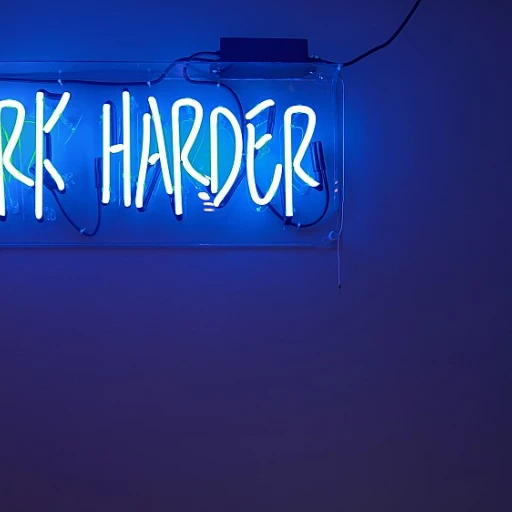Understanding Workplace Investigations
Comprehending the Dynamics of Workplace Investigations
In the realm of employment, understanding workplace investigations proves essential in today's complex work environment. These investigations serve as standard procedures that organizations execute to address potential misconduct, ensuring compliance with both federal and state laws. From workplace violence to allegations of sexual harassment, every employee needs to be aware of how these procedures unfold and what they entail.
The primary objective of any workplace investigation is to disclose the truth regarding reports of inappropriate behavior or violation of company policies. When allegations arise, an employer may initiate an investigation to determine the veracity of claims. This process not only protects the integrity of the organization but also safeguards the rights of employees involved.
In some cases, investigations may incorporate a background check to verify the information at hand or to provide context to suspicious activities. The inclusion of background checks often necessitates a review of the employee's history and the legality of such actions is a common concern. Employees have legal protections in place, and understanding these rights is important to ensure fair treatment. To gain further insights into procedural nuances, you may reference comprehensive discussions on related subjects like
understanding check returned refer to maker in background checks.
Employers, in their stride to uphold a safe and lawful work environment, must adhere to legal frameworks during investigations. This includes respecting confidentiality and the right of an employee to remain silent, especially if criminal charges loom. If ever found in the crossfire of a workplace investigation, seeking legal advice from a qualified attorney might be prudent to navigate potential pitfalls and protect individual rights. An informed understanding empowers employees and employers alike, fostering a healthier and more transparent workplace culture.
Subtle Signs of Being Investigated
Identifying Inconspicuous Indicators
Identifying the subtle signs of being investigated at work can be challenging but crucial, especially when navigating workplace environments. Employees often become aware of a possible investigation due to certain indicators, which may not always be openly acknowledged by the employer.
One common sign is a shift in the work environment dynamic. If you notice colleagues or supervisors maintaining distance or behaving unusually, it could hint at a workplace investigation. This might originate from HR initiatives focusing on issues such as workplace violence or harassment. Moreover, heightened scrutiny from higher-ups, like unusually frequent reviews or unexpected audits, can also signal an investigation.
Another indication is limited access to company resources. If you find yourself unable to access certain files or are suddenly restricted from certain projects without a clear explanation, it may suggest an investigation process. This limitation often ensures confidentiality or the integrity of the investigation.
Receiving unusual requests for meetings with human resources or legal counsel could also be a sign. If these meetings occur more frequently or without prior scheduling, it may hint at the employer's administrative or legal concerns. In such instances, seeking legal advice from a defense attorney might be prudent.
If you observe several of these signs, it's essential to remain aware but not to jump to conclusions immediately. Explore opportunities to discuss any concerns with a trusted mentor or colleague, ensuring the conversation remains confidential. It may also be beneficial to review potential
opportunities in jobs without background checks if you want to explore alternative career paths.
Being informed about these signs helps employees better understand their rights and prepares them if their case demands further criminal defense measures. Staying aware of these signs can empower workers to anticipate and respond to these complex situations effectively.
The Role of Background Checks in Investigations
The Importance of Background Checks in Workplace Investigations
When you're facing an investigation at work, it's crucial to understand how background checks play a significant role. Employers often use background checks to gather vital information about an employee during an investigation. This process may involve reviewing criminal records, past employment history, and other relevant data. Here are some ways background checks are pivotal in such scenarios:
- Establishing Facts: Background checks help employers to verify facts related to the investigation, like prior work history and any discrepancies in what an employee has disclosed.
- Identifying Patterns: By examining past behavior, background checks can reveal patterns that might suggest a propensity toward certain conduct, such as workplace violence or harassment.
- Assessing Risk: During workplace investigations, companies need to assess the risk an employee may pose. Background checks provide insights that can influence decisions regarding the employee's future with the company.
It's important to know that background checks must comply with legal standards, including federal and state laws. Getting legal advice from an attorney can be beneficial if you find yourself under such scrutiny. A company conducting an investigation will ensure that background checks adhere to these regulations, safeguarding the rights of its employees.
If you're worried about what might appear in a background check, you might want to review how warrants can impact your employment prospects. For more detailed information, see
do warrants appear on background checks. Understanding this can provide clarity and help mitigate any concerns you might have during the investigation process.
Legal Rights During an Investigation
Understanding Your Legal Protection
Workplace investigations can be quite stressful for any employee, and it's crucial to know your legal rights to navigate this challenging situation. Whether you are suspected of workplace violence, harassment, or other misconduct, federal and state laws provide specific protections. Here’s what you need to be aware of:
- Right to Advance Notice: Many companies are required by law to inform employees when they are being investigated. This is particularly true for allegations of sexual harassment or other serious workplace violations.
- Right to Remain Silent: Though you may wish to cooperate, there are instances where remaining silent is in your best interest. Speaking with a criminal defense attorney can provide guidance on handling communication during the investigation.
- Legal Representation: In cases that involve potential criminal charges, consulting with a legal expert or an attorney can help protect your rights. A defense attorney can offer advice, especially if the investigation might involve law enforcement.
- Protection from Retaliation: Every employee has the right to work in an environment free from retaliation. If you feel targeted or hostile work conditions are developing as a result of an investigation, legal help may be necessary.
- Reviewing the Company’s Policy: Familiarize yourself with your company’s employee handbook or code of conduct. This can give you insight into what the company policies say regarding workplace investigations.
Remember, the outcome of any investigation can have significant implications for your career. Stay informed, seek legal advice where needed, and ensure your rights are not infringed upon throughout the investigation process.
Impact of Investigations on Career
The Influence of Workplace Investigations on Your Career Path
Facing an investigation at work can be an intimidating experience for any employee. The impact on your career can be significant, affecting not only your current position but also future opportunities. Here are some fundamental ways in which workplace investigations can influence your professional path:
- Reputation Damage: If you're under investigation, negative perceptions can arise among colleagues and supervisors, which may linger even after the investigation concludes. Rumors can spread quickly in a work environment, impacting how you're viewed by peers.
- Career Advancement: Being part of any workplace investigation can put a pause on potential promotions or career advancement opportunities. Employers may wait for the outcome of investigations before considering your suitability for higher positions.
- Job Security: If an investigation finds any wrongdoing, you might face disciplinary actions, including termination. Even if you're found not culpable, the mere suspicion can affect your standing within the company.
- Emotional and Psychological Impact: The stress of being investigated can take a toll on your mental well-being, which in turn affects productivity and engagement at work. Maintaining composure and accessing professional help or legal advice can mitigate some of these effects.
- Recourse and Recovery: If you've been cleared of any wrongdoing, it’s important to explore ways to rebuild your professional image. This could involve seeking feedback, improving skillsets, or even considering opportunities outside your current organization.
Navigating through such investigations requires understanding and exercising your legal rights. Engaging with an attorney knowledgeable in employment law can provide guidance tailored to your situation. It's essential to remain informed and proactive to safeguard your career interests while maintaining a respectful approach towards your employer and coworkers throughout the process.
Navigating the Investigation Process
Strategies to Effectively Manage Workplace Investigations
Navigating a workplace investigation can be a daunting task, especially when your career and reputation are at stake. The entire process can be overwhelming, but with the right strategies, you can manage it smoothly and protect yourself.
- Seek Legal Advice: First and foremost, consider obtaining legal advice from a qualified attorney. In situations involving legal and workplace investigations, the expertise of a defense attorney can provide clarity and protect your legal rights, whether dealing with allegations of workplace violence or sexual harassment.
- Remain Calm and Professional: It's crucial to maintain a calm and professional demeanor throughout the investigation. Avoid engaging in hostile work behavior that could further complicate your situation. Instead, respond to inquiries from your employer or law enforcement with patience and respect.
- Understand Your Legal Rights: Being knowledgeable about your legal rights during an investigation is essential. Federal and state laws afford certain protections, such as the right to remain silent, especially if you are facing criminal charges. Being informed can prevent uninformed decisions that may negatively impact your career.
- Cooperate with the Investigation: Cooperating with the investigation can often work in your favor. Provide information within the bounds of legality while ensuring you do not incriminate yourself inadvertently. Your willingness to cooperate can demonstrate your integrity to the employer.
- Evaluate the Impact on Your Career: Reflect on how the investigation might affect your professional trajectory and consider discussing possible career ramifications with a career counselor or mentor.
Managing a workplace investigation requires tact and wisdom. By implementing these strategies, you can better navigate the complexities involved and focus on maintaining your career's stability and growth.














